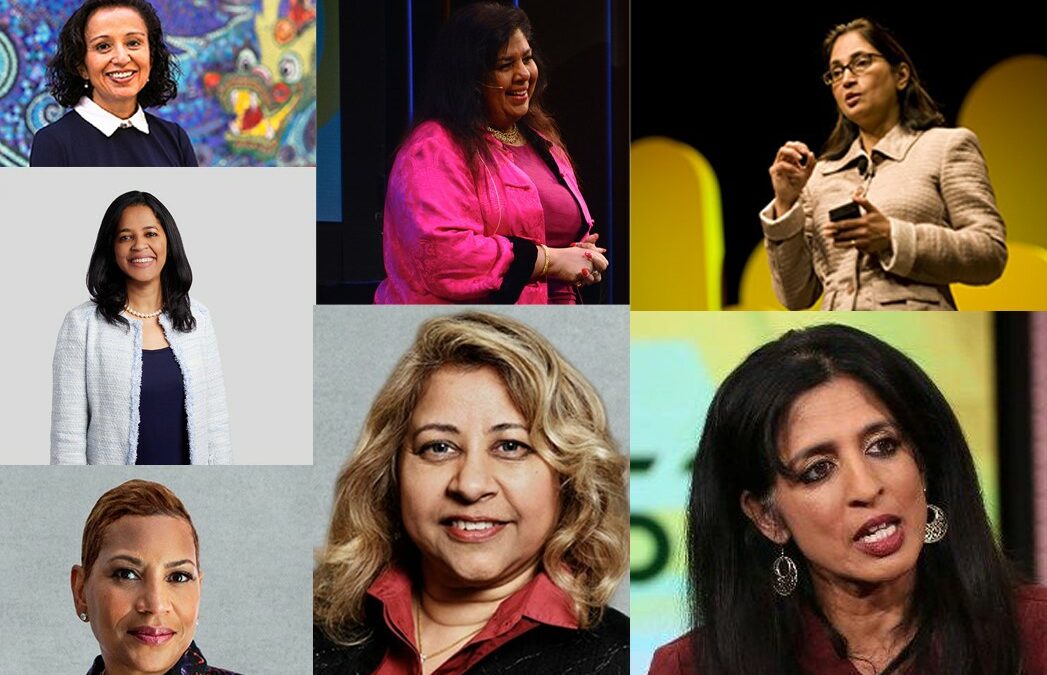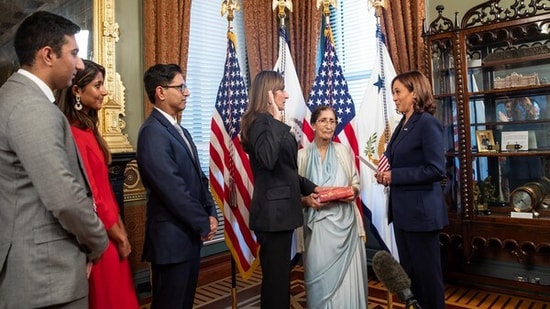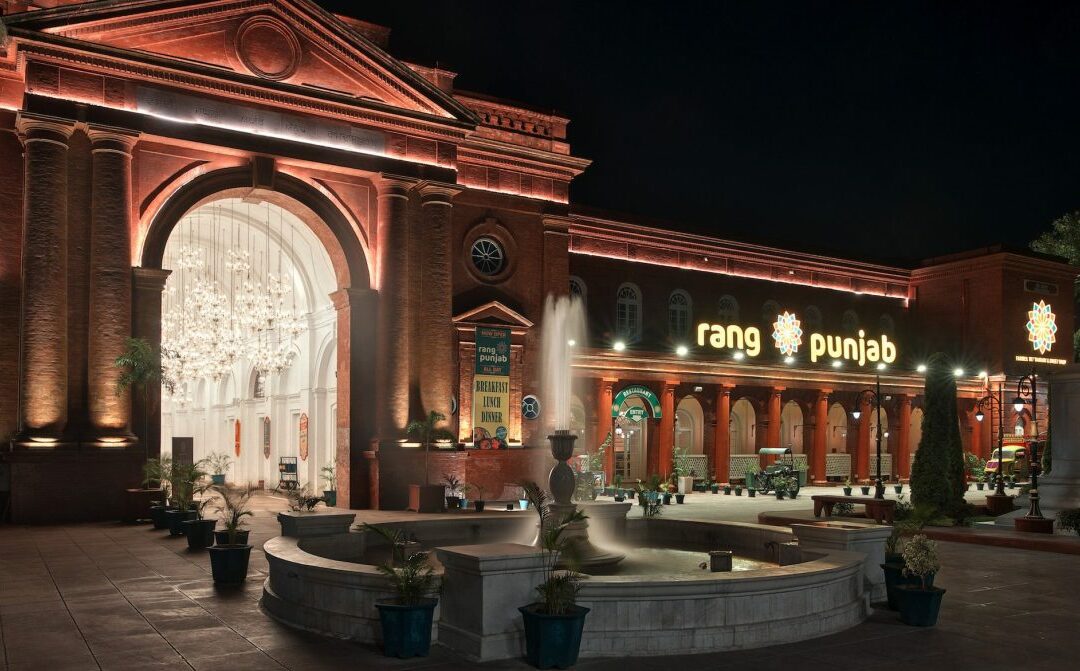Seven Indian American women figure among Forbes second annual 50 Over 50 list of 200 entrepreneurs, investors, creators, and entertainers who prove everyday that “success has no age limit.”
Seven Indian American women figure among Forbes second annual 50 Over 50 list of 200 entrepreneurs, investors, creators, and entertainers who prove everyday that “success has no age limit.”
The 2022 50 Over 50 presents 200 women across four broad categories—lifestyle, entrepreneurs, impact and money—and dozens of sub-sectors.
The final list was compiled, Forbes says on the basis of some tough questions: What specifically had they accomplished over the age of 50? Did they step into a new or more powerful role later in life? Did they make a big pivot? Are they achieving at scale?
That meant a minimum of $10 million in revenues for founders of private companies, a $300 million market cap for public firms or $100 million in assets under management for finance types.
Indian Americans on the list are Manjusha Kulkarni, 53, Cofounder, Stop AAPI Hate; Revathi Advaithi, CEO, Flex; Ann Mukherjee, chair and CEO at Pernod Ricard North America; Poornima DeBolle, co-founder, Menlo Security; Anita Gupta, founder, KiwiTech; Padmasree Warrior, founder, Fable; and Jayshree Ullal, CEO, Arista.
While Kulkarni is listed in the Impact section, all the six others figure in the Entrepreneur category.
Manjusha Kulkarni, 53, Cofounder, Stop AAPI Hate
Kulkarni co-founded Stop AAPI Hate, the nation’s leading aggregator of Covid-19-related hate incidents against Asian Americans and Pacific Islanders, in March 2020.
She is also the Executive Director of AAPI Equity Alliance, a coalition of community-based organizations that advocate for the rights and needs of the Asian American community in Southern California.
Kulkarni was formerly the executive director of the South Asian Network, an organization dedicated to advancing the health and empowerment of people of South Asian origin in Southern California.
It’s one of the oldest South Asian American community-based organizations in the US Her advocacy focuses on effective policies and practices related to health and healthcare, civil rights and violence prevention.
In 2014, Kulkarni received the White House Champions of Change award for her dedication to improving healthcare access for South Asian Americans.
Revathi Advaithi, 54 | CEO, Flex
Advaithi took over as the CEO of global manufacturing and supply-chain company, Flex in 2019.
At Flex, Advaithi oversees 200,000 employees and sets the strategic direction for a company earning $26 billion in annual revenue.
Prior to joining Flex, Advaithi held leadership positions at Eaton and Honeywell.
She serves as a director on the boards of Uber and Catalyst.org and is a member of the MIT Presidential CEO Advisory Board.
Poornima DeBolle, 53 | Cofounder, Menlo Security
DeBolle is the cofounder and chief product officer at Menlo Security, a leading cloud and network security company.
In 2020, Menlo Security announced it raised $100 million in Series E funding, with a company valuation of $800 million.
Before starting Menlo, DeBolle was a product management executive at Juniper Networks, responsible for cloud security, security management, and security analytics.
She joined Juniper via its acquisition of Altor Networks, where she was vice president of product management and business development.
Anita Gupta, 58, Founder, KiwiTech
Gupta has dedicated her fifth decade to creating disruptive innovation through her company KiwiTech’s investment in over 500 startups.
She is a founder and chief portfolio officer at Kiwitech, a company that helps early to growth-stage startups build viable products, raise capital, and scale their businesses.
She is particularly interested in providing training and strategic assistance to female and minority entrepreneurs. Before co-founding Kiwitech, while still in graduate school, she co-founded Aptara, a company focused on digital content production, publishing, editorial services, e-learning and technology services. In 2012, Aptara was sold for $144 million.
Ann Mukherjee, 56, CEO, Pernot Ricard North America
Mukherjee became the first industry outsider and first woman of color to assume the position of chair and CEO at wine and spirits company Pernod Ricard North America in 2019.
Inspired by her own experiences, Mukherjee launched Absolut’s #SexResponsibly campaign to raise awareness of the connection between responsible drinking and consent and to take a stand against perpetrators who use alcohol as a tool or excuse to commit crimes.
Prior to joining Pernod, she held the roles of global CMO and global chief commercial officer at SC Johnson and was responsible for its $12 billion consumer global business division.
Mukherjee has also held leadership positions at Kraft Foods and PepsiCo.
Jayshree Ullal, 61, CEO, Arista
Ullal has been president and CEO of Arista Networks, a computer networking firm, since 2008. She joined the board of directors of Snowflake, a cloud computing company that went public in September 2020.
The publicly-traded company recorded revenue of $2.3 billion in 2020, a decrease of nearly 4% compared to fiscal year 2019. Ullal owns about 5% of Arista’s stock, some of which is earmarked for her two children, niece and nephew.
In August 2018, Arista settled a multi-year patent infringement battle with Cisco, Ullal’s former employer, agreeing to pay Cisco $400 million. Born in London and raised in India, she is one of America’s wealthiest female executives.
Padmasree Warrior, 61, Founder, Fable
The innovation pro has served as CTO of Cisco and Motorola and is currently the founder-CEO of Fable, a platform for social reading and book clubs. It raised over $28 million in 2021.
Warrior previously served as US CEO and chief development officer of NIO, a Chinese electric autonomous vehicle company, where she transitioned the company from start-up to IPO on the New York Stock Exchange in three years.
She’s also been busy on the boards of Microsoft and Spotify, mentoring other women in the tech industry and staying in touch with her 1.3 million Twitter followers.
A Cornell-trained engineer, she believes a STEM education informs creativity: “Increasingly it’s not about knowing all the answers but asking the right questions and figuring out how to get the right answer.”





